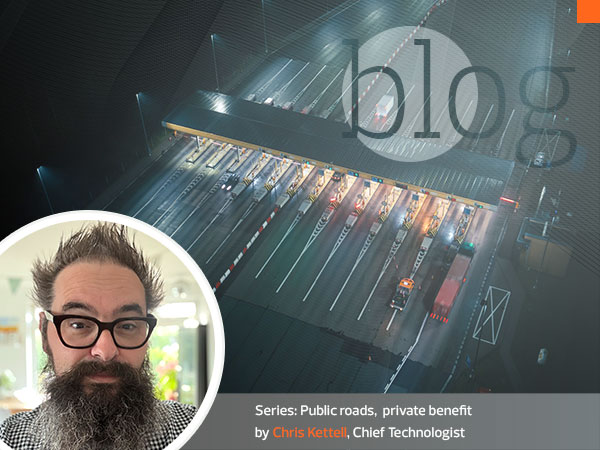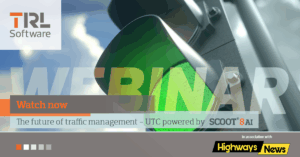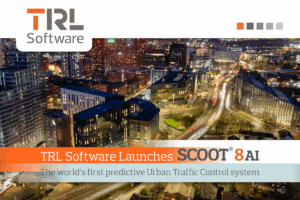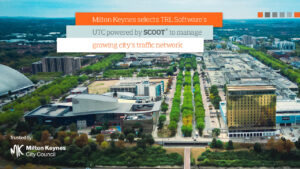How Data-Driven Mobility is Transforming Public Infrastructure and Road Safety
In the not-so-distant past, the relationship between people and roads was straightforward. Roads were public infrastructure, funded by taxpayers and managed by governments for the common good. They were physical spaces that connected communities, enabled commerce, and facilitated movement.
Today, something profound is changing.
Our roads are becoming more than mere tarmac and concrete – they’re transforming into data-generating platforms. As vehicles evolve from mechanical conveyances to sophisticated computers on wheels, they continuously collect, process, and transmit vast amounts of information. This shift raises urgent questions about who benefits from this data revolution happening on our public highways.
Why This Matters
The digitisation of mobility represents one of the most significant yet under-examined shifts in how public resources are being repurposed for private gain. While governments worldwide invest billions in road infrastructure, private corporations are increasingly positioned to extract value from these public assets through data collection and algorithmic control.
This isn’t simply about technology – it’s about power, equity, and the future of our shared spaces.
What to Expect in This Series
Over the next nine instalments, we’ll embark on a journey to understand the complex intersection of public infrastructure, private technology, and data capitalism in the context of modern mobility:
- The Road Ahead: We’ll begin by examining how connected and autonomous vehicles (CAVs) are fundamentally changing the nature of mobility and the potential these technologies hold.
- Public Infrastructure, Private Profits: Next, we’ll investigate the troubling dynamic of publicly funded roads being leveraged as platforms for corporate data extraction.
- The New Oil? The Hidden Value of Vehicle Data: We’ll unpack the staggering variety and value of data generated by modern vehicles—and who stands to profit from it.
- From Smart Cars to Surveillance Cars: The surveillance capabilities of connected vehicles extend beyond what many realise, with implications for privacy and civil liberties.
- Who Really Benefits?: We’ll challenge prevailing narratives about autonomous vehicles as an unalloyed public good.
- Public Good, Private Code: The black-box algorithms increasingly controlling our transport systems deserve scrutiny, particularly when deployed in public spaces.
- Urban Planning Without Planners: How are tech companies reshaping our cities through private data and platforms, potentially sidelining democratic input?
- Taking Back the Wheel: We’ll explore alternative governance models where data from public spaces primarily benefits the public.
- Building a Mobility Commons: Finally, we’ll outline a vision for how public data, infrastructure, and technology can serve collective needs rather than narrow interests.
A New Framework for Thinking About Mobility
Throughout this series, I aim to provide a framework for understanding – and challenging – the current trajectory of transportation technology. Rather than accepting the status quo as inevitable, we’ll examine how different choices about data governance, technology design, and public policy could lead to more equitable outcomes.
The roads beneath our wheels and feet have always been commons – spaces created and maintained for shared use. As these spaces become enmeshed with digital technologies, we face crucial decisions about preserving their common character or allowing them to become enclosed for private gain.
Join me as we navigate this changing landscape and imagine alternatives that put public benefit at the centre of mobility’s future.
The first post in this series, “The Road Ahead: How Connected Vehicles are Changing Mobility,” will be published next week.
A Note from the Author
Were it not for Dr Mark Playdell who around a year ago used the phrase “public roads, private benefit” when presenting at the ARTSM AGM, this series would not exist. Mark gave a lot to think about during his presentation and discussion which has stuck with me, and I have borrowed “public roads, private benefit” as a sort of punctuated statement in my own presentations, discussions and thoughts.
Most recently at the ARTSM AGM, I presented “All I wanted to know was where the vehicles were, but look what we got instead” (or “The absurd reality of data collection”) where I set out the opportunities, challenges and barriers to accessing the right data about the right things to be able to do better. And at the TRL UTC SCOOT user group most recently, I again addressed the importance of data, the role it plays in the future of traffic control, what good, bad and worrying looks like, along with the challenges of making the best use of data.
So here we are. This feels somewhat cathartic to get out of my head the internal conversation I have been having for nigh on one year. I hope you find something useful, thought-provoking or to take away in this series.
About TRL Software
TRL Software is at the forefront of innovative transport solutions, providing industry-leading expertise in Intelligent Signal Control, Digital Asset Management, Junctions & Signal Design, and Crash Data & Analysis. Our solutions enhance road safety, efficiency, and sustainability, supporting smarter and safer mobility. Explore our services to understand how we can help shape the future of transport infrastructure.



